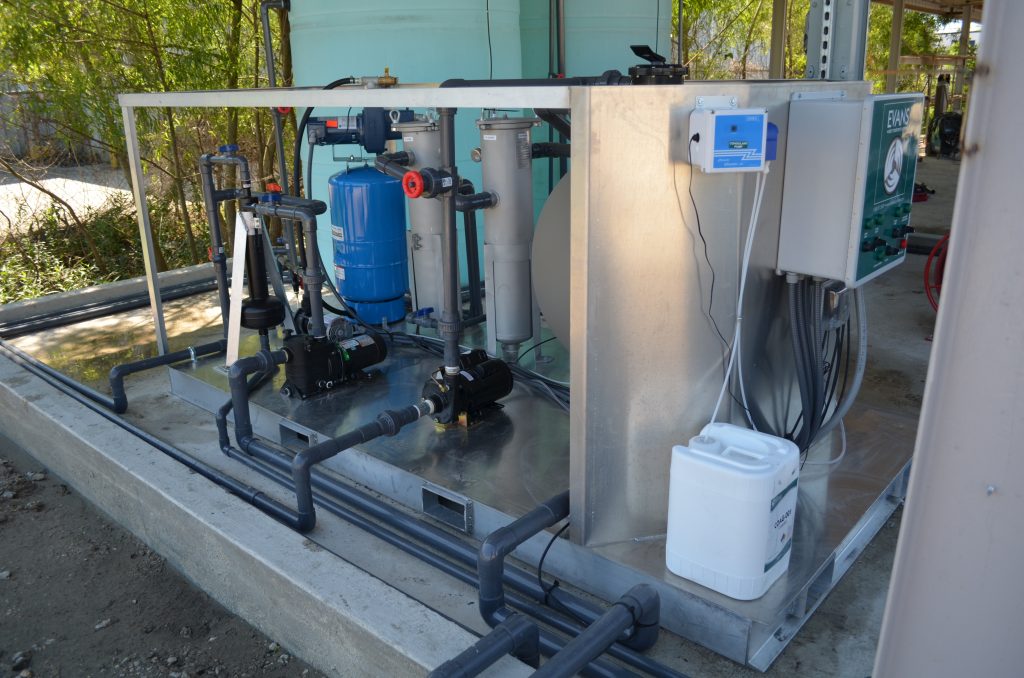STAY CONNECTED
Signup for our blog to receive tips and knowledge on industrial wash and wastewater treatment best practices.
Work with Us
Don’t settle for less than a solution from a partner who takes complete responsibility from start to finish. We make it easy to keep things clean and compliance effortless. Contact us today to discuss your wastewater treatment and industrial wash needs.
10/03/2018
How Clean Do You Need Your Water?
For the number of ways industrial equipment can get dirty, there are just as many ways to clean it. In order to effectively decontaminate wastewater, it’s important to understand the best methods and setup for the job at hand. Depending on your environment, equipment and level of contamination, you can can customize your setup to include different treatment mechanisms, pumps, filters, detergents, and pressure washers.
To begin developing the best solution for your business, you should ask yourself, “How clean do I need my water?”.
Wastewater Treatment Using Bio-Remediation
One of the most common ways to treat wastewater is the use of biological compounds, such as microbes, to break down light-medium contamination. This treatment is primarily used when a company needs to remove:
- Grease
- Oils
- Drilling Mud
- Other Types of Hydrocarbons
- Organic Matter
- Other Light-Medium Viscous Contamination
This form of bio-treatment can effectively and rapidly degrade organic contaminates, and either discharge the remaining water or recycle for reuse through an industrial pressure washer. While this can get your water relatively clean (100-50 microns), sometimes you need to further decontaminate.
Heavy Decontamination Using Filtration
We recently had a customer who was using two of our hot-water pressure washers with their pipe cleaning equipment on drilling pipes. Their situation called for heavy filtration of wastewater so they could reuse the water effectively. Another customer rents heavy construction equipment to operators, which requires a higher level of decontamination than average vehicles and trucks.
When you’re facing heavy contamination, your best option is including a filtration skid in your setup (pictured above). You can run the water through filters in series to achieve the required result of water clarification. You can use individual filters by themselves, or in a custom combination to further remove the following suspended solids:
- Clays
- Silts
- Flocs
- Oil and Grease
For example, if your system is using high-pressure pumps, you’re more than likely going to need a combination of filters to make sure contaminants are managed properly. For our customer who needed heavy cleaning on drilling pipes, we installed the following filters to be used in a multi-step process: sand and gravel filter => sock filter for suspended solids => carbon filters for oil/grease.
In many cases, you could even combine bio-remediation with filtration when you have organic contaminates and suspended solids. Their are a number of solutions that can work together to make sure your setup is efficient, effective, and compliant with regulation. With either form of wastewater treatment, you can either discharge the treated water through a sewer or other environmentally compliant location, install a system to evaporate excess water, or recycle the water for reuse.
Are You Setup for Efficient Cleaning?
Start by defining how clean your water needs to be to get the job done effectively. If you do not have the expertise on hand to diagnose the situation, we can help.
At Evans Equipment & Environmental, we can take it from there and develop a turn-key solution for your specific situation. We offer design, construction, and maintenance support to optimize your complete wastewater treatment process. We have designed all of our products with the ability to work together or stand-alone. For more information on our products and services, please visit www.evansequipment.com or give us a call at 1-800-377-5872.
